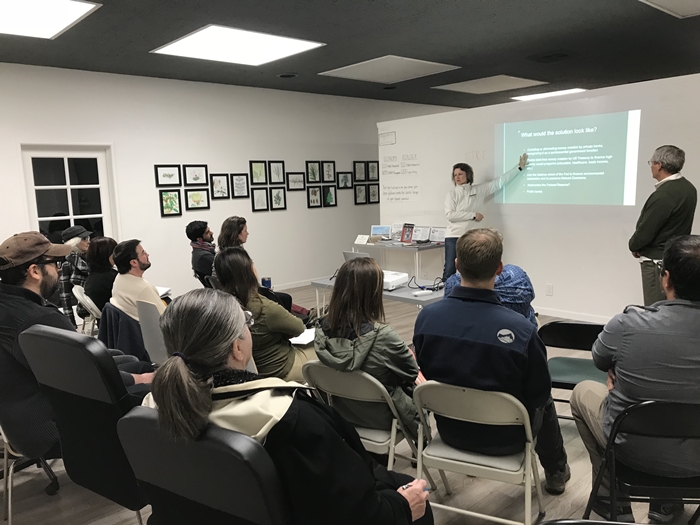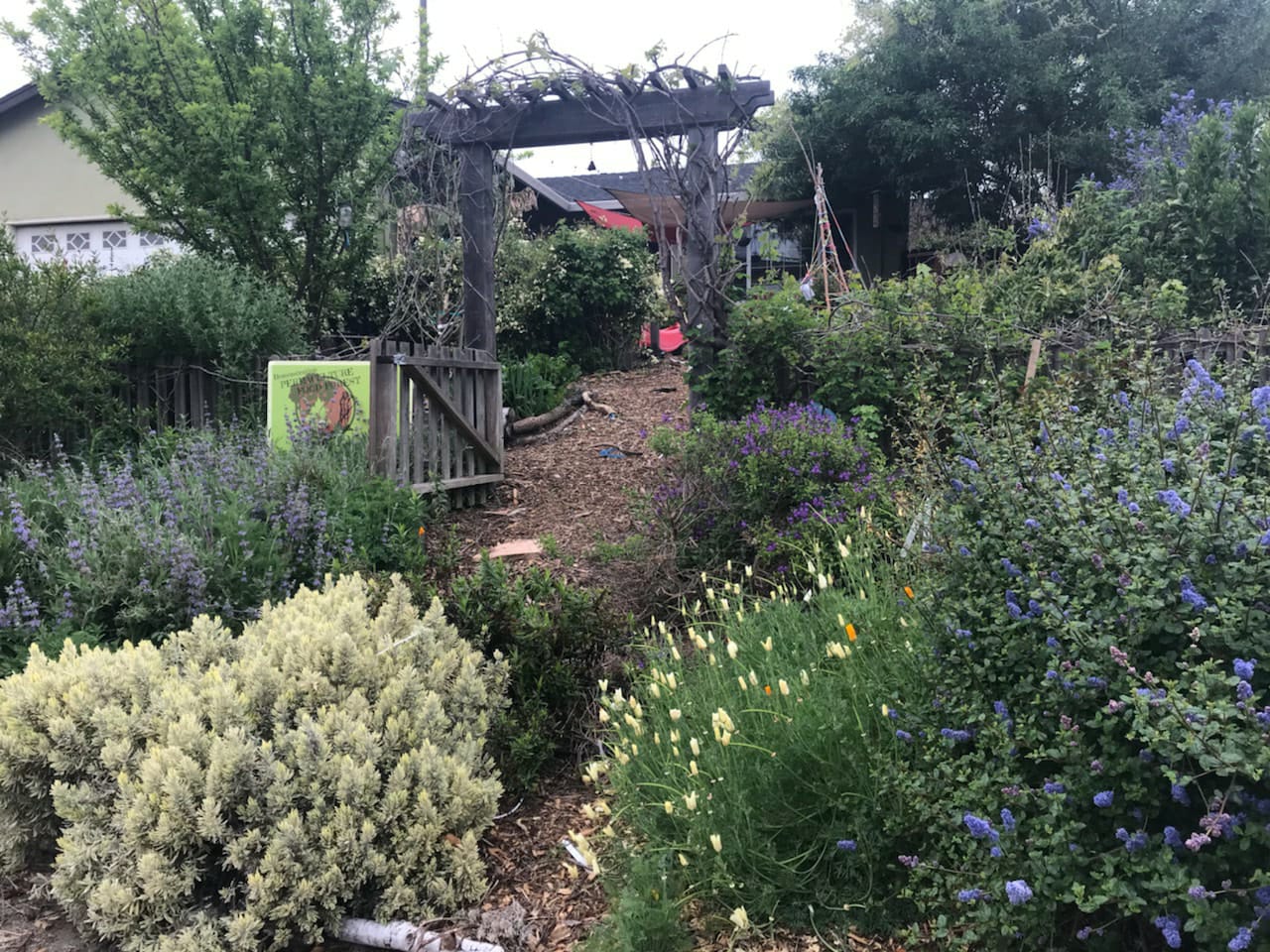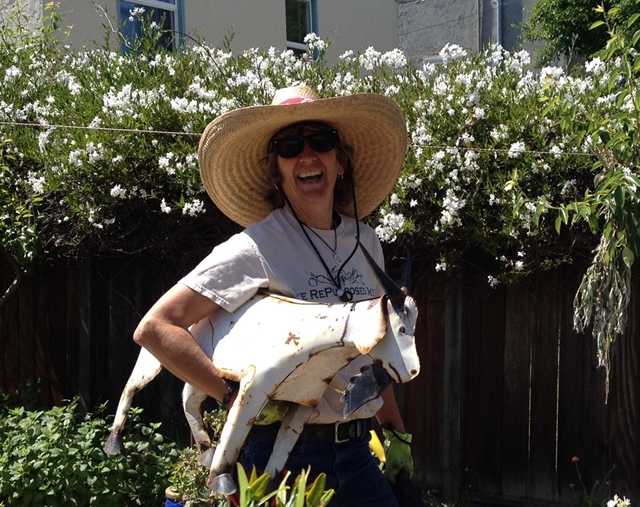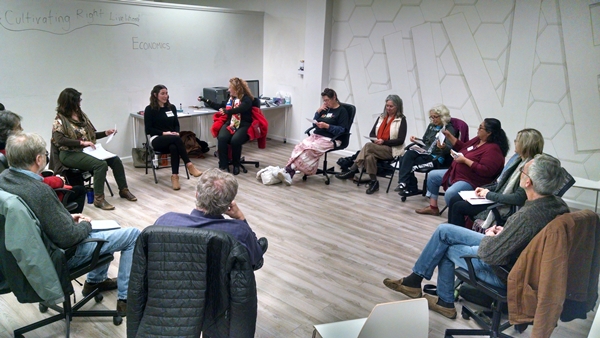Mini Green New Deal for Benicia: Funding Will Make Education, Conservation Program a Reality
By Sustainable Solano

Sustainable Solano will launch a new program in Benicia that will bring sustainable landscaping training and skills to local landscape professionals and high school students while also helping Benicia residents turn their lawns into sustainable, waterwise food forest gardens in the coming years.
Significant funding provided for the Community Land & Water Caretaker Program is the result of three-party negotiations initiated by the Good Neighbor Steering Committee with Valero and the City of Benicia. The negotiations ended with adoption of a second amendment to the 2008 Settlement Agreement, which had been originally contracted between the GNSC and Valero over challenges the GNSC had posed to Valero’s submission of an addendum to the officially adopted environmental review of the Valero Improvement Project. The current amendment reallocated funds that had been previously distributed to other projects under the original agreement but were determined to be “nonperforming” as they had not been put to use as intended.
Alternatively, the GNSC proposed redistributing those funds to four worthy projects, which Valero and the city reviewed and finally approved. The chosen projects reflect water and energy saving aims that were terms of the settlement: $460,000 for an independent, Benicia Community Air Monitoring Program to be administered by a new nonprofit; $100,000 for Air Watch Bay Area, a public website capturing air monitoring data collected throughout the region; $450,000 for the city to create an Integrated Water Management Plan; and $440,000 for Sustainable Solano’s Community Land & Water Caretaker Program.
In late February, the Benicia City Council after long deliberation voted unanimously to approve the agreement as put forth by the GNSC and Valero — an agreement that will allow us to continue to grow the important work we do in the city where we first started with Benicia Community Gardens 20 years ago.
One of the most exciting aspects of the Community Land & Water Caretaker Program is how it will incorporate education with conservation, helping to teach the next generation of leaders and landscape professionals through a hands-on education and certification program — a training room without walls.
Here are some main benefits of the Community Land & Water Caretaker Program as proposed:
- Create a new program for Benicia residents to convert their lawns through sheet mulching into environmentally friendly food forest gardens and incorporate greywater systems and rainwater harvesting. These could be done free of charge or for a small fee for the property owner and would help residents reduce their water bills, create more sustainable communities and create more edible landscapes.
- Offer training for local landscapers and horticulture graduates on rainwater retention, laundry-to-landscape greywater systems and edible landscaping. Those who receive the training would then be hired as contractors for the program. The program not only provides the training and pays for the installations, but gives these landscapers increased exposure to potential customers.
- Offer internships for high school students to gain experience in sustainable landscaping, including calculating water re-use for the home and creating landscape plans.
The idea builds on the important work Sustainable Solano has done to create food forests within communities, which started with the Benicia Sustainable Backyard Program funded by the Benicia Community Sustainability Commission. That program was able to grow with funding from the Solano County Water Agency — using demonstration food forests in Benicia to inspire gardens in cities throughout the county.
It also draws from what we learned with the Land Caretakers program, funded by the Solano Small Business Development Center in 2016. That program gave us insight into the need for sustainable practices training among landscape professionals and inspired the idea to teach high school students those skills as a means of workforce development.
Based on what we learned from the Benicia Sustainable Backyard Program, a single house that is converted from a lawn to a food forest with laundry-to-landscape and rainwater harvesting systems can save 70,000 gallons of municipal water, divert more than 50,000 gallons of rainwater from the storm management system and make more than 30,000 gallons of that rainwater available for groundwater recharge.
Preliminary estimates show that if 300 Benicia homeowners participate in the new program, converting 300 lawns could result in water savings of 2 million gallons a year; 300 laundry-to-landscape systems would save 7.5 million gallons a year; and rainwater retention would save 14.4 million gallons a year — a total of 22 million gallons of water saved annually.
We are delighted to have a chance to once again plant the seeds of a new program in Benicia that could serve as a model for other communities.
We hope to share more with you about the program as we move forward!
Good Neighbor Steering Committee’s Commitment Pays Off
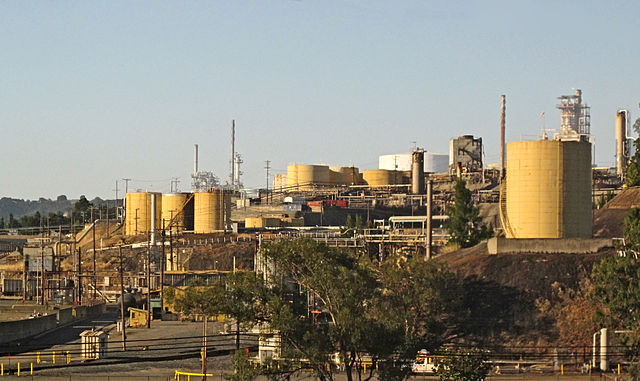
Our hats off to the five local Benicia women of the Good Neighbor Steering Committee for their tireless work over many years as “refinery watchdogs” to protect our air quality, community health and safety.
The GNSC first formed in 2000 to address the refinery’s change in ownership when Valero made the purchase from Exxon.
For their determination to negotiate with Valero and the City of Benicia to reallocate settlement funds, we thank GNSC members Marilyn Bardet, Mary Frances Kelly-Poh, Kathy Kerridge, Constance Buetel and Nancy Lund, and GNSC attorney Dana Dean. We also thank them for recognizing Sustainable Solano’s contributions to water and energy savings that will be realizable through our new Community Land & Water Caretaker Program.

